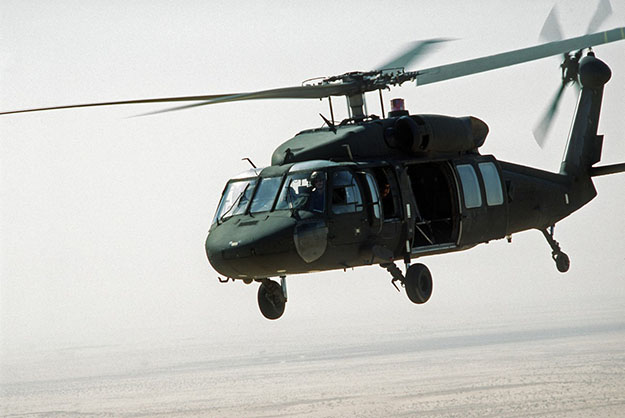The Defense Department is moving quickly to re-name military bases named after Confederate leaders, at the same time major league sports teams and high schools have removed images and names related to Native Americans. Which, begs the question, are helicopters next?
How one person perceives another person is a natural occurrence. What shapes one's perception, however, and how that perception is acted upon is quite another thing.
In 1947 Army General Hamilton Howze was assigned to Army aviation. His job was to develop the doctrine and the way forward in how the Army would use aircraft in support of warfighters on the ground. He is credited with being the originator of the air cavalry.
He was also no fan of the names of two Army helicopters, the Hoverfly and Dragonfly. The names did not suggest to him the role that these helicopters would have in combat.
Howze observed that helicopters were to be fast and agile, that they would attack the enemy's flanks and then fade away, similar to the way many of the Native Americans on the Great Plains had fought.
This belief led him in 1947 to decide that the next helicopter produced for and purchased by the Army, the H-13, would be called the Sioux in honor of the tribe which fought and decisively defeated the Army's 7th Calvary Regiment during the Battle of the Little Bighorn in 1876.
This tradition took off, and as a consequence many (but not all) Army helicopters were named to honor the Chickasaw, Shawnee, Mojave, Iroquois, Chinook, Cayuse and Cheyenne. In 1969 the tradition took the language of Army Regulation 70-28.
The regulation spells out the criteria for the naming of major items of equipment. The name had to appeal to the imagination without sacrificing dignity; it had to suggest an aggressive spirit and confidence in its abilities; it needed to reflect the item's mobility, agility, flexibility, firepower and endurance; it had to be based on its tactical value; and the name had to be associated with the preceding qualities and criteria if a person's name was proposed.
With regard to helicopters, these aircraft were categorized as requiring "Indian terms and names of American Indian tribes and chiefs." The Bureau of Indian Affairs would provide the names to choose from.
After 1969 the Black Hawk, Apache, Comanche, Lakota and Arapaho were honored in the same manner. While AR 70-28 has been rescinded and replaced with policies that do not mention the above criteria, the tradition has lingered.
In 2012 when the Army named its current primary training helicopter, the UH-72A Lakota, elders from the tribe blessed two of the aircraft in a traditional ceremony at the Standing Rock Reservation in North Dakota.
But ....
While many strongly argue that the tradition of naming some of the Army's helicopters honor the warrior spirit of Native Americans, others perceive the practice as racist in much the same way they did in forcing the NFL's Washington Redskins to change their name to the Washington Football Team.
In 2014 Simon Waxman, a managing editor of Boston Review, wrote that the Army's use of names like Apache, Black Hawk or Kiowa represent an "injustice" by the federal government.
"Why do we name our battles and weapons after people we have vanquished? (Because the) myth of the worthy native adversary is more palatable than the reality - the conquered tribes of this land were not rivals but victims, cheated and impossibly outgunned," he stated.
"In whatever measure it is a tribute to the dead, it is in greater measure a boost to our national sense of superiority. If the native tribes did not stand a chance, this does not imply lack of resistance or of courage; regardless, it doesn't much matter in this context. Whatever courage they had, the U.S. military is not heir to it. If honor matters to the members of our armed forces, they will agree."
Perhaps. But with the work of the Commission on the Naming of Items of the Department of Defense That Commemorate the Confederate States of America or Any Person Who Served Voluntarily with the Confederate States of America (mercifully known as the Naming Commission), with the push to have professional sports teams rename, as Washington (football) and Cleveland (baseball) have, and with a growing awareness about the use of school mascots, a discussion about whether or not the naming of helicopters is perceived as honor or racism may be in the future.





Read Comments